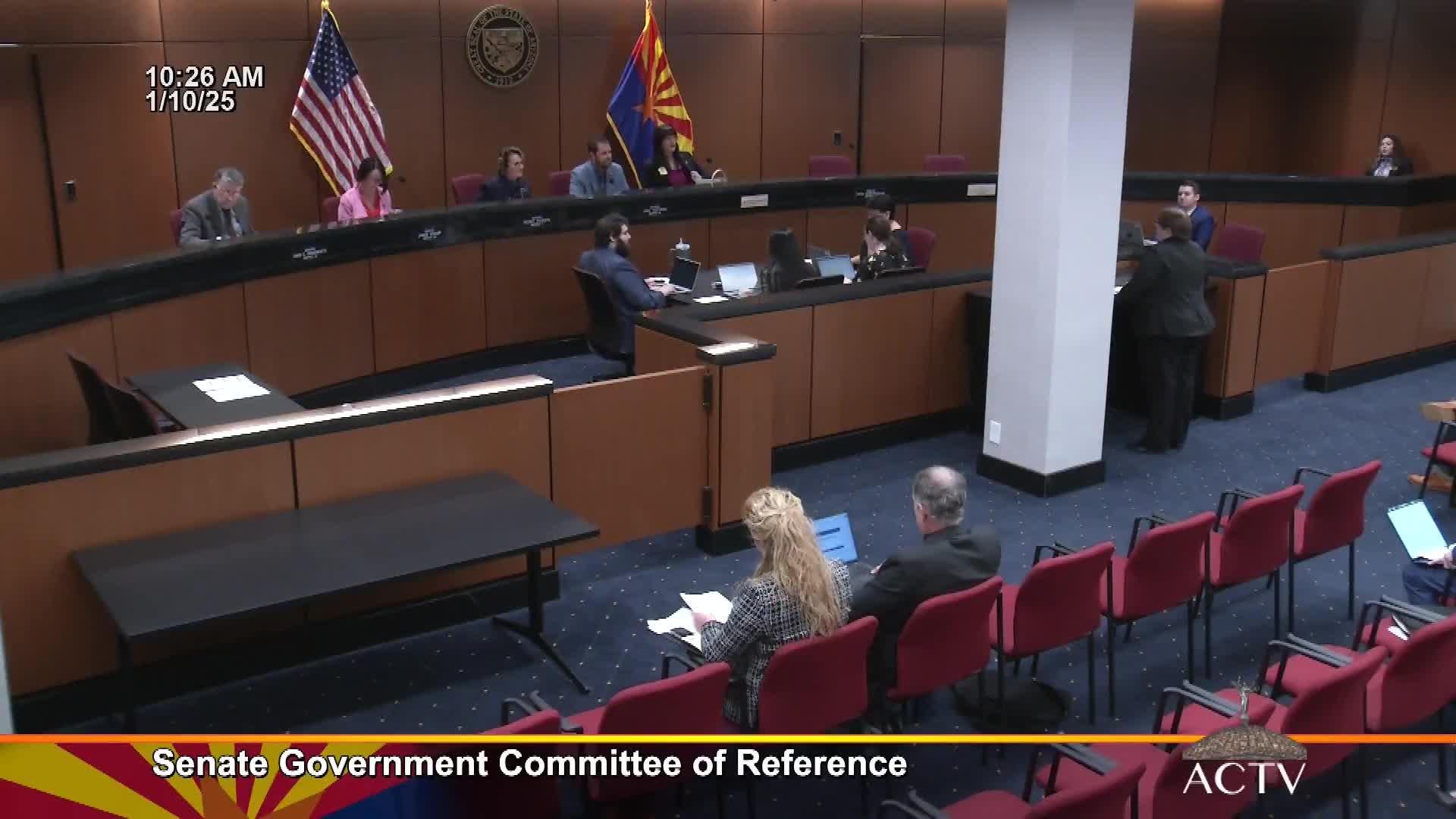Audit finds gaps in Governor's Regulatory Review Council processes; staff says tracking fixes are in place
Get AI-powered insights, summaries, and transcripts
Subscribe
Summary
An audit by the Arizona Office of the Auditor General found the Governor's Regulatory Review Council lacked formal tracking and documentation for some rule‑review and five‑year review processes, and that executive‑session recordings sometimes omitted required details, an auditor's contractor told the Senate Government Committee on Oct. 12, 2025.
An audit by the Arizona Office of the Auditor General found the Governor's Regulatory Review Council lacked formal tracking and documentation for some rule‑review and five‑year review processes, and that executive‑session recordings sometimes omitted required details, an auditor's contractor told the Senate Government Committee on Oct. 12, 2025.
The auditor's presenter, Katie Gribowski of the Arizona Auditor General's office, summarized a contractor report by Sjoberg Evashank Consulting that reviewed the council's performance. "My name is Katie Gribowski, and I'm with the Arizona Auditor General's office," she told the committee, and said the audit examined GURC's handling of proposed rule‑making packages and five‑year rule reviews between 2021 and 2023.
The audit found the council completed reviews of statutory rule‑making packages on average in 54 days and met quorum and voting requirements for rules made effective immediately. But the contractor identified several weaknesses: the council relied on a manual process that monitored a central email inbox rather than a formal tracking system; it failed to send required 90‑day reminder notices for two five‑year reviews (including the Department of Agriculture report due Oct. 31, 2022, which — the audit said — was not submitted until May 6, 2024); and some executive‑session recordings lacked meeting date, time, place and attendance information required under Arizona's open meeting law.
Those gaps, the audit said, increase the risk that agencies miss statutory review deadlines and that outdated or noncompliant rules remain in effect. The contractor recommended six corrective actions, including formalizing written procedures and consolidating tracking of rule‑making and five‑year review deadlines, and following Arizona Department of Administration open‑meeting guidance for executive sessions. "The council agreed with the findings and agreed to implement all 6 recommendations," Gribowski told the committee.
Simon Larcheidt, staff attorney for the Governor's Regulatory Review Council, said the council has already implemented several of the recommended procedural changes. "As of August 2024, the council staff has implemented separate tracking for all steps in the council's rule‑making review process," Larcheidt told senators, and showed a spreadsheet that the council uses to track dates received, staff review steps, follow ups and meeting dates. He said the council also consolidated five‑year review notification tracking into a single spreadsheet and updated its executive‑session script to ensure required disclosures and recording information are captured.
Larcheidt told the committee that the council considers five‑year reviews on a best‑practice timetable comparable to the 120‑day benchmark used for rule makings, and that staff completed 192 five‑year review reports between 2021 and 2023 with an average completion time of 87 days; the contractor reported that 25 of those reviews (about 13%) exceeded 120 days.
Senators pressed council staff on the depth of staff legal review. Senator Shamp asked whether staff research looks beyond statutes submitted by agencies to confirm that proposed rules do not exceed statutory authority. Larcheidt said staff reviews the statutes agencies provide and prepares materials for council members, and that council members may request supplemental information if they believe additional legal research is needed. He also said staff had in some instances performed independent statute review but could not recall specific recent examples.
The audit recommended a six‑month contractor follow‑up; Gribowski said the contractor will conduct that review to assess implementation progress. The Senate committee did not issue recommendations at this hearing and said it will hold a second session when the council's chair is available to answer questions from additional committee members.
Why this matters: GURC reviews agency rules to ensure they are clear, necessary and within agencies' statutory authority. The auditor's findings point to administrative and documentation weaknesses that, if not addressed, could undermine timely review of rules and compliance with open‑meeting requirements.
What comes next: The contractor will do an initial six‑month follow up on the council's progress implementing the recommendations, and the committee will reconvene for a second hearing with GURC's chair present.
